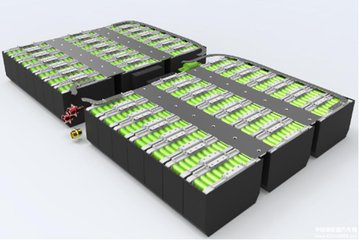Higher cruising range, shorter charging time, and safer use ... These are the goals that major scientific research institutions and enterprises are constantly pursuing in terms of electric vehicles. Today, electric vehicle manufacturer Fisker is applying for a solid-state battery patent, which can increase the range of electric vehicles to 500 miles (about 805 kilometers) and shorten the charging time to 1 minute. The company plans to commercialize the battery by 2023. Fisker was founded in 2005 in California, USA, and was founded by BMW former designer Henrik Fisker. In February 2014, Fisker was accepted by China Wanxiang Group and later renamed Karma. According to a report by the UK on November 14, this week Fisker submitted a patent application document for a solid-state battery. The patent involves new materials and manufacturing processes, which are very important to achieve the energy density, power and cost goals required by the battery and to promote the promotion and application of electric vehicles. A solid-state battery is a battery that uses solid electrodes and a solid electrolyte. Most of the batteries that are usually used are liquid batteries, and the electrolyte is mostly liquid. Because of its relatively high power and weight, solid-state batteries are ideal batteries for electric vehicles. However, early research results indicate that there are still many limitations in commercial applications of solid-state batteries, such as low electrode current density, limited temperature range, limited materials available, high cost, and complex manufacturing processes. In addition, there are several failure modes that affect the performance of solid-state batteries, including high contact resistance in the electrode layer structure and low ion mobility, resulting in a relatively low discharge capacity of the battery. Fisker said that their solid-state batteries use three-dimensional electrodes to try to overcome the above challenges. The surface area of ​​this three-dimensional electrode is 25 times that of the ordinary solid-state battery thin-film electrode, and has higher electronic and ionic conductivity, thereby achieving fast charging and low temperature operation. Therefore, the energy density of this solid battery is 2.5 times that of ordinary lithium-ion batteries. With the continuous improvement of materials and manufacturing levels, Fisker expects that the cost of such batteries will be one-third of conventional lithium-ion batteries by 2020. In addition, the risk of battery explosion is relatively low. Fabio Albano, vice president of Fisker ’s battery system, said, “This breakthrough marks the beginning of a new era of solid-state battery materials and manufacturing technologies.†He also said, “We are addressing other obstacles that solid-state batteries encounter on the road to commercialization. For example, the performance of the battery in a low-temperature environment. "Fisker said that this battery will be displayed at the International Consumer Electronics Show (CES) in January next year and is expected to be commercialized in 2023. Currently, the company is negotiating with potential non-automotive partners, and it is possible to commercialize this battery as early as 2023. In fact, solid-state batteries are not entirely new research areas. Scientists have been studying this technology in the laboratory for many years. However, due to problems such as production costs and durability of the charging cycle, this product has not yet been applied. In addition to Fisker, other companies and research institutions have also invested considerable attention in this field of research and development. For example, Japan ’s NEDO (Japan ’s Comprehensive Development Agency for New Energy Industry Technology) formulated an R & D plan as early as 2008 and plans to achieve mass production of solid-state batteries by 2030, including solid-state lithium metal, solid-state lithium sulfur, and solid-state lithium air batteries . In July of this year, Toyota of Japan made new progress in solid-state battery patents and announced that it would launch a new electric vehicle equipped with all-solid-state batteries in 2022. German Volkswagen has also said that it is already planning the next generation of electric vehicle batteries, solid-state batteries with a mileage of more than 1,000 kilometers, which will be mass-produced in 2025. Our company specializes in the production and sales of all kinds of terminals, copper terminals, nose wire ears, cold pressed terminals, copper joints, but also according to customer requirements for customization and production, our raw materials are produced and sold by ourselves, we have their own raw materials processing plant, high purity T2 copper, quality and quantity, come to me to order it! Copper Connecting Terminals,Cable Lugs Insulated Cord End Terminals,Pvc Insulated Cord End Terminal,Cable Connector Insulated Cord End Terminal Taixing Longyi Terminals Co.,Ltd. , https://www.longyiterminals.com